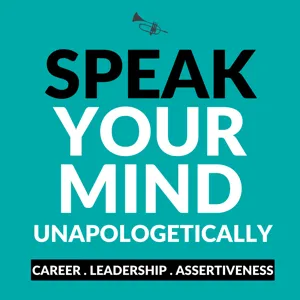Podcast Summary
The Importance of Diversity, Equity, and Inclusion in Science: Ignoring diverse perspectives in science harms individuals and limits research applicability and effectiveness. Psychologists have a critical role in promoting DEI efforts to expand understanding and find solutions to societal challenges.
Prioritizing diversity, equity, and inclusion (DEI) goes beyond addressing historical exclusion and is essential for the growth of science and the betterment of society. By ignoring the experiences and understandings of underrepresented groups, we not only harm their life chances but also limit the applicability and effectiveness of scientific research and treatments. Psychologists, in particular, have a critical role in promoting DEI efforts as their work can significantly impact mental health and other psychological outcomes. The research on racial and ethnic identity shows that excluding certain experiences can lead to negative consequences, both for individuals and the field of psychology. Therefore, it's crucial to value and include diverse perspectives to expand our understanding and find solutions to complex societal challenges.
Creating Inclusive Problem-Solving Environments: Diversity, equity, and inclusion are vital for effective problem-solving. Diversity captures human experiences, equity breaks down barriers, and inclusion values all perspectives. An inclusive environment leads to innovative ideas, better problem-solving, and a more equitable society.
Diversity, equity, and inclusion are essential components for effectively solving complex problems. Diversity refers to capturing the full range of human experiences, which are often underrepresented due to historical and societal inequities. Equity involves breaking down barriers that prevent equal participation, and inclusion means valuing and including all perspectives, even if it means challenging power dynamics. Having a diverse group of people with different experiences is crucial, but it's not enough if some individuals are excluded or silenced based on their identity. The goal is to create an inclusive environment where everyone's perspective is valued and contributes to the solution. The benefits of this approach include more innovative ideas, better problem-solving, and a more equitable society.
Recognizing the importance of belonging in DEI initiatives: DEI experts emphasize the significance of belonging in communities, leading to a shift in research focusing on individual differences and unique contexts to promote progress in DEI initiatives
Promoting diversity, equity, and inclusion (DEI) in communities is crucial for solving complex problems. However, it's essential to acknowledge the importance of belonging as well. Belonging stems from feeling included and having a sense of ownership in the enterprise. DEI experts argue that belonging should be added to the DEI abbreviation. In the field of psychology, there has been a shift in how racial and ethnic identity is studied. Researchers now focus on within-group variability and individual differences among African Americans, rather than solely comparing them to whites. Understanding the humanity and individuality of all communities is essential, as we tend to view our own groups as individuals and other groups as homogeneous entities. This shift towards recognizing individual differences and understanding communities in their unique contexts has led to significant progress but still requires continued effort.
Understanding the Complexity of African American Racial Identity: Avoid stereotypes and recognize the nuanced ways individuals define and understand their racial identity, as outlined in the multimodal model of racial identity developed by Dr. Middleton.
While it's natural for us to categorize people and put them in groups, it's important to avoid stereotypes and preconceived notions that can limit our ability to connect with others. The multimodal model of racial identity, developed by Dr. Middleton, offers insight into the complex ways African Americans define and understand their racial identity. The model recognizes that individuals differ in the significance they place on race and in their ideologies around what it means to be black. Understanding this variation and the nuanced ways people think about race can help foster more meaningful connections and reduce negative stereotypes. The On Our Minds podcast from PBS NewsHour Student Reporting Labs is a great resource for exploring topics related to mental health and well-being, including identity and self-definition.
The psychological impact of being black and African American in racial contexts: DEI efforts promote diverse perspectives, leading to better problem-solving, creativity, and innovation, crucial for industries reliant on these skills.
The experience of being black and African American varies psychologically, leading to different outcomes when combined with racial contexts. DEI efforts, aimed at promoting diversity, equity, and inclusion, have faced criticism and pushback, often due to misunderstandings and surface-level debates. Critics argue that there is a lack of empirical evidence supporting the value of DEI efforts. However, research shows that diverse perspectives lead to better problem-solving, creativity, and innovation. These benefits are crucial for industries and fields that rely heavily on problem-solving, such as business, sciences, and social sciences. By fostering a diverse workforce and encouraging the exchange of ideas, organizations can improve their overall performance and mission success. It's essential to move beyond surface-level critiques and focus on the true goals and benefits of DEI initiatives.
Focusing on lived experiences for true diversity of thought: DEI efforts require changing organizational structures, cultures, and policies to provide opportunities and prevent discrimination, while recent decisions may limit opportunities for underrepresented groups, perpetuating societal inequalities.
True diversity of thought comes from a diversity of lived experiences, which are deeply influenced by social identities. DEI efforts should focus on fundamentally changing organizational structures, cultures, and policies to provide opportunities for individuals from diverse backgrounds and prevent discrimination. The recent Supreme Court decision limiting the use of race in college admissions could limit opportunities for underrepresented groups, as race has historically influenced individuals' life chances. The impact of this decision could be felt beyond education and could perpetuate societal inequalities. It's important to remember that DEI is an ongoing process, not a one-time solution.
Symbolic gestures are necessary but insufficient for addressing inequities: Long-term approach required for addressing racial, gender, and national origin disparities through structural adjustments, redistribution of opportunities, power, and wealth, and ongoing efforts to change laws perpetuating inequality.
Addressing historical and current inequities through symbolic gestures, such as renaming institutions or issuing apologies, is important but insufficient. These actions should be seen as a necessary first step, but the real change requires structural adjustments, redistribution of opportunities, power, and wealth, and a commitment to ongoing efforts to address and ultimately change the laws that perpetuate inequality. The speaker, who has experience as a chief diversity officer, emphasizes the need for a long-term approach to addressing racial, gender, and national origin disparities, especially in the context of legal restrictions on affirmative action. The speaker also acknowledges the importance of performative actions in raising awareness and sparking conversation, but warns against complacency and the danger of believing that these actions alone are enough to bring about meaningful change.
Including diverse perspectives in psychology research: Expanding perspectives in psychology research leads to a more accurate and comprehensive understanding of human behavior by avoiding skewed or incomplete conclusions, and includes individuals from various communities who have been historically excluded.
Expanding the diversity of perspectives and experiences in scientific research, particularly in psychology, is crucial for gaining a more accurate and comprehensive understanding of human behavior. Historically, psychology has focused on studying human behavior from a narrow perspective, primarily in Western, educated, industrial, rich, democratic societies, often from a predominantly white, male, heterosexual, able-bodied perspective. This limited view can lead to misunderstandings and harm. By including a wider range of experiences and perspectives, we can enrich our understanding of normative human behavior and avoid skewed or incomplete conclusions. The exclusion of certain communities from resources and opportunities to contribute to research not only harms those individuals but also limits the progress and understanding of the larger society. Therefore, it's essential for psychology to actively seek out and include diverse voices and experiences in research to create a more accurate and complete picture of human behavior.
Discussing the Importance of Diversity, Equity, and Inclusion in Psychology: Understanding the human experience is at the core of psychological science and practice. To provide accurate and effective insights and solutions, it's crucial for psychology to reflect the diversity of the population it serves by being diverse, equitable, and inclusive.
Key takeaway from this conversation between Dr. Sellars and Kim Mills on Speaking of Psychology is the importance of diversity, equity, and inclusion in the field of psychology. As they discussed, understanding the human experience is at the core of psychological science and practice. Therefore, it's crucial to ensure that this field reflects the diversity of the population it serves. By being diverse, equitable, and inclusive, psychology can provide more accurate and effective insights and solutions for individuals from all backgrounds. It's essential to continue these conversations and efforts to promote a more inclusive and representative field. Additionally, if you enjoyed this episode, please leave a review or share your thoughts and ideas for future podcasts by emailing speakingofpsychology@apa.org. You can find previous episodes on the APA website or your favorite podcast platform. Speaking of Psychology is produced by Lee Winerman, and our sound editor is Chris Kundian. Thank you for listening to Speaking of Psychology, brought to you by the American Psychological Association.




![Robs Rant: Why Your Problems Are NOT Problems [Business, mindset, entrepreneur, disruptors]](https://www.podcastworld.io/podcast-images/disruptors-kt0uj0xy.webp)

